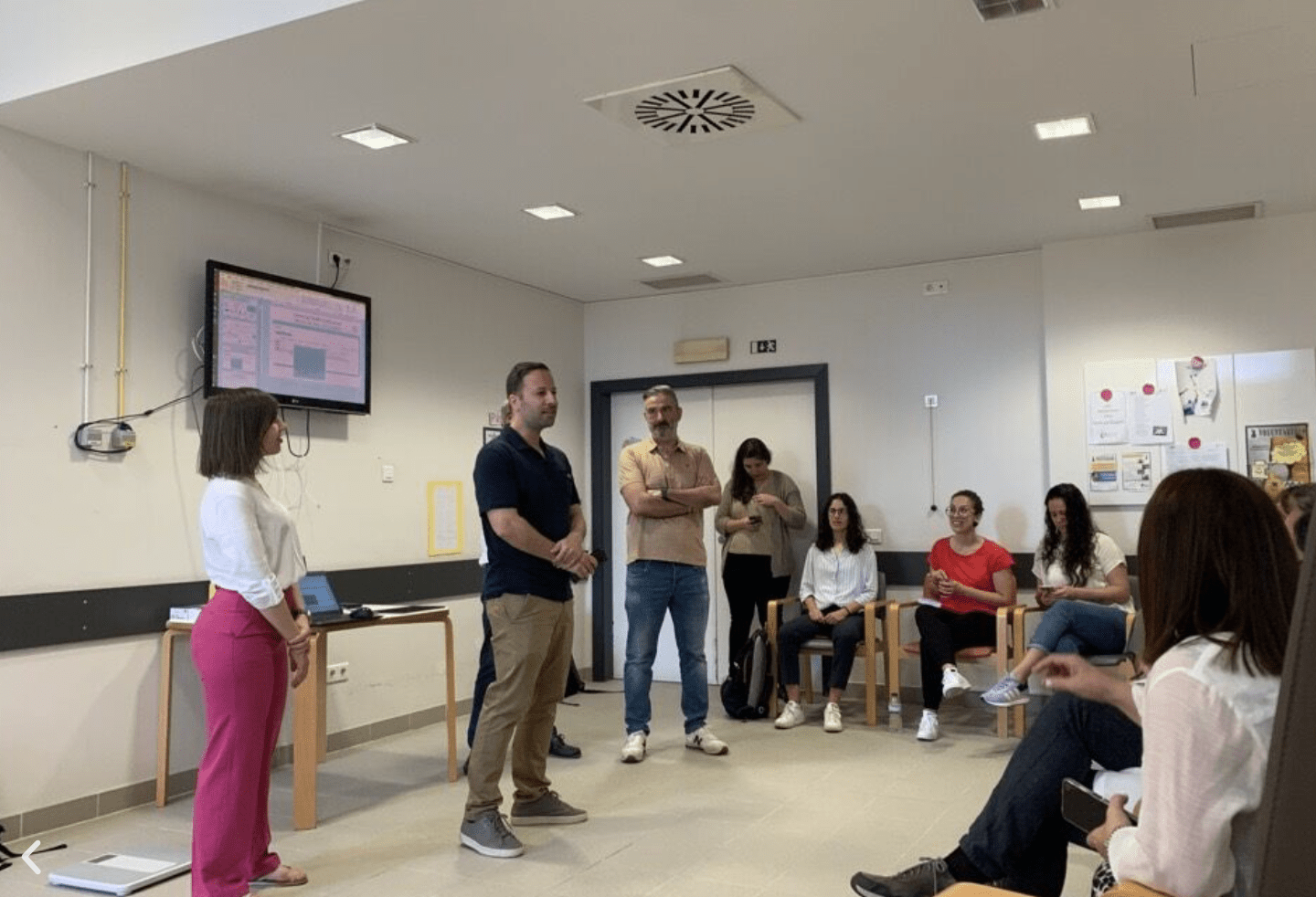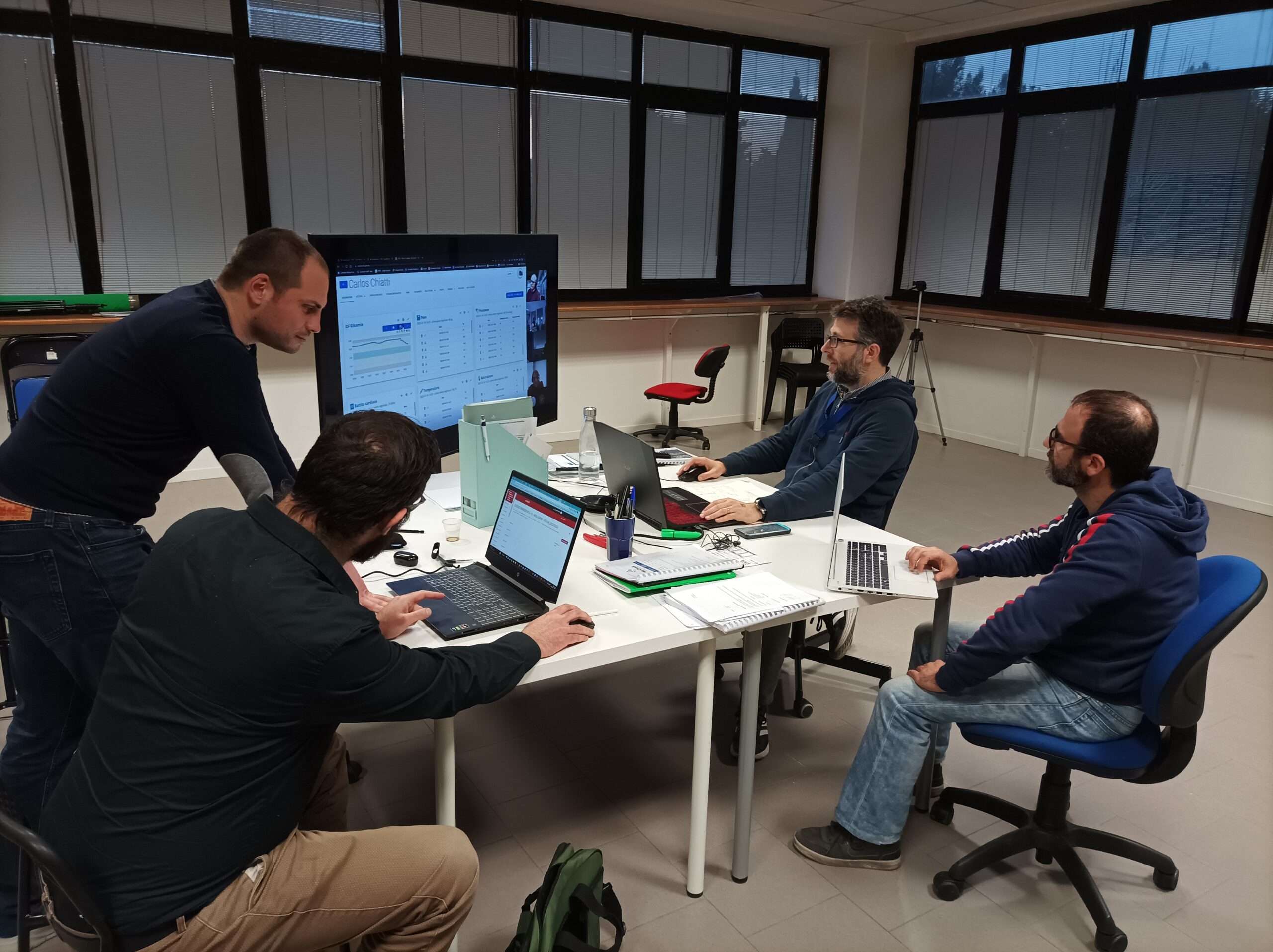The INCAREHEART project is now well underway and our suppliers are actively building out their solutions and engaging with stakeholders. As they carry out their prototype testing, we asked them a few questions about how their work is going. Here, the CardiaCare team, led by Gnomon Informatics SA, tell us about their solution.
Why did you want to take part in the INCAREHEART project?
We’re currently following the path to integrate digital technology in a way that changes how we operate and deliver added values to patients and healthcare providers (HCPs). We could say that it’s also a cultural change that requires us to continually challenge the status quo and get comfortable with the results. It is therefore a great challenge finding out how smart, innovative technologies can contribute to the remote management of specific health diseases. Chronic Heart Failure (CHF) is a complex disease, usually followed by several co-morbidities. A patient’s journey includes the clinical supervision of the treatment progress, but also the need for support when it comes to facing insecurity and quitting bad habits. INCAREHEART suggested the creation of a holistic solution that integrates a comprehensive set of key features into one modular platform. We’re warm supporters of this vision of multidisciplinary, cross-organisational care and support for people living with CHF across a fully integrated patient pathway.
How did you form your consortium?
CareCardia’s consortium is lead by Gnomon Informatics SA, based in Thessaloniki, Greece. Gnomon has a wide previous experience in successfully leading and participating in research projects. Gnomon is also an active member in many different networking groups and clusters. The consortium of CareCardia was built by inviting remarkable companies and research institutions to join. All of them are already experienced in delivering digital e-health services and products. More specifically, the consortium consists of: ERC in Turkey, Datawizard in Italy, Promptly in Portugal and Sweden and two research partners in Greece, the Medical Physics and Digital Innovation Lab from the School of Medicine, Aristotle University of Thessaloniki and the Foundation for Research and Technology from the Institute of Computer Science in Crete. Additionally, a Medical Advisory Board is also included in this consortium and is lead by Professor and Cardiologist Vasileios P. Vasilikos and Dr. Constantinos Bakogiannis, Cardiologist.
Explain your solution
CareCardia integrates state-of-the art, clinical evidence-based technologies into a single digital platform that follows CHF patients from the point of diagnosis, through treatment and care up to the receipt of early supportive care. Our solution is patient-centered by design and contains several features for patient self management and empowerment. The patient centeredness is achieved through the secure and privacy-preserving Advanced Care Digital Directory, the integration of patient-reported outecome measures, the consent mechanism and other personalized easy-to-use digital tools. The mobile app for the patient also includes a virtual assistant, an exergaming platform and an educational and training platform with problem-based learning approaches. CareCardia also provides integrated and coordinated care through the shared care plan for multidisciplinary care teams, involving all the stakeholders (CHF patients, HCPs, caregivers). It supports a strong interoperability framework based on related standards (HL7 FHIR). Our solution also provides digital services to create a strong knowledgeable patient-health provider care alliance. This approach is based on safe digital communication channels, remote patient monitoring through the integration of smart connected devices and novel digital biomarkers, a clinical decision support system enhanced by multi-modal deep-learning machine algorithms, and full healthcare documentation systems providing updated patient information and also a hands-on training for HCPs enabling their preparedeness towards a better communication with their patients. The Patient Outcome Analytics services leverage the integration of Patient Reported Experience Measures while at the same time, the multidisciplinary team coordination services allow the digitalization of the patient transitions and pathways in a structured way.
Why do you feel that co-design is important?
Our consortium consists of experienced technological companies as well as research institutions with a medical background, while at the same time a Medical Advisory Board is also included. However, such solutions should follow a user-centred design approach. Therefore, co-creation activities are very crucial so that we can observe and deeper understand the real needs and problems of the patients living with CHF, their unofficial caregivers and other stakeholders (HCPs, nurses, etc). Additionally, the health and digital skills literacy of the potential users are better understood.
What was the most important thing you learned from the first round of prototype testing?
The most important lesson that came out after the first prototype testing is the necessity of having a user – friendly environment for the patients. When it comes to CHF patients it is quite possible that we’re referring to elderly people, so the easy-to-use interface is very important for them to get engaged with a digital solution. CHF disease also has the consequence of having feelings such as insecurity and facing social isolation. Therefore, these factors must also be taken into consideration when delivering a solution for the improvement of the overall management of this disease. Additionally, when it comes to the HCPs, it very important keeping in our minds that our aim in CareCardia is delivering supporting tools that can facilitate their huge amount of work (i.e. interactive visualizations, automated recommendations, communication settings etc) without sliding over them.
Was there any feedback that surprised you during the testing?
A kind of surprise was getting different feedback from different countries for the same functionalities. This makes sense since each health system is differently structured and has different prioritization in their needs and requirements. Different people also have different culture and way of thinking. This is why we designed a scalable and extendable solution that can be easily not only adjusted according to each procurer’s system characteristics and patient group’s needs, but also re-used in the future for the management of different long-term conditions such as frailty.
How do you feel as you iterate your solution ahead of the next stage?
We’re very happy having reached this phase. The creation of the CareCardia prototype was a challenging and productive procedure. With the active participation of all the partners we also did have a repeated observation and assessment of our progress, while cross checking at same time our goals with the real needs of the users, through co-creation activities. We’re looking forward to the demonstration and live presentation of our second and final fully functional prototype, hoping that we’ll have met the expectations and get the “ticket” for the next phase!
To read more from our suppliers, see our interviews with CardioCare and CORRAL.



